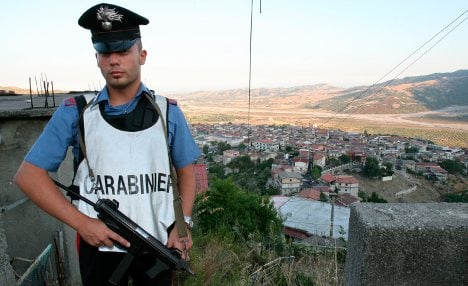“We have hit at the central structure of the ‘Ndrangheta,” Carlo Pieroni, a spokesman for Carabinieri paramilitary police in the southern Italian region of Calabria who led the operation, told news agency AFP.
Pieroni said the six people arrested in Germany, as well as those targeted by three warrants in Canada and two in Australia, were accused of recycling illicit funds from Italy in shops and small construction businesses.
German police said they had arrested one man in Frankfurt and five others in the Lake Constance region in southern Germany near the border with Switzerland.
“The ‘Ndrangheta is on the brink or at least it will be forced to re-organise,” Pieroni said, adding that the arrests were on multiple charges of extortion, drug trafficking and money laundering.
Interior Minister Roberto Maroni said: “This was an exceptionally important operation as it dealt a serious blow to the ‘Ndrangheta in Italy and abroad.”
One of the men arrested in Italy hid in a bunker for several hours.
“We surrounded his house, which was in the countryside. He hid in a bunker under the house and we negotiated to get him out and arrest him. We didn’t want to go in with pneumatic drills to dig him out,” Pieroni added.
The ‘Ndrangheta is one of the most powerful and secretive global crime syndicates and plays a key role in the illicit drug market. The group has an estimated annual turnover of tens of billions of euros.
The group’s heartland is the impoverished region of Calabria.
Italian news agency ANSA reported that one of the warrants in Australia was for the former mayor of the small town of Stirling, Tony Vallelonga, who emigrated from Calabria to Australia more than 30 years ago.
AFP/rm




 Please whitelist us to continue reading.
Please whitelist us to continue reading.
Member comments